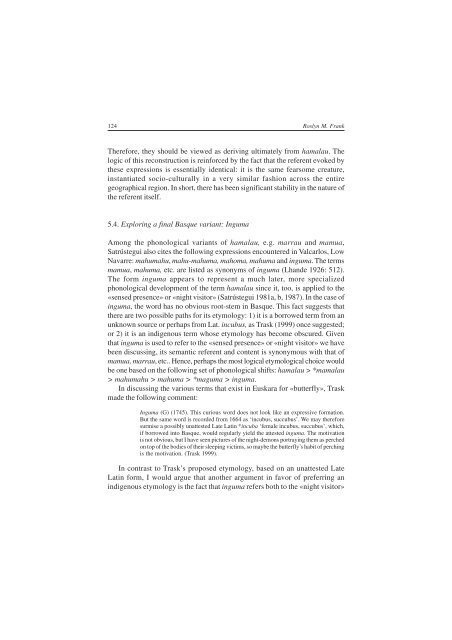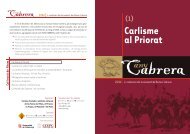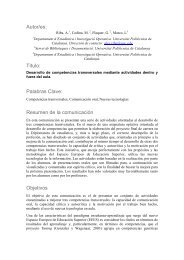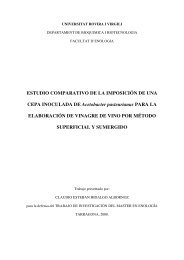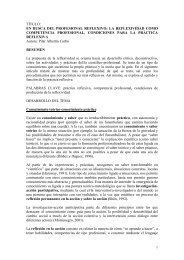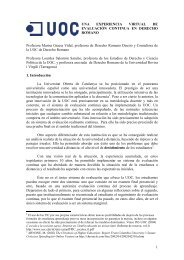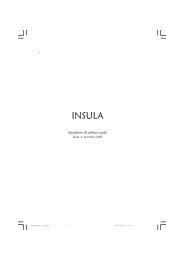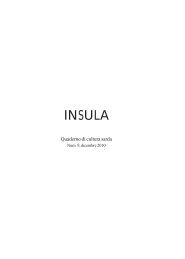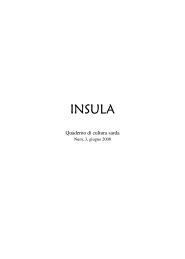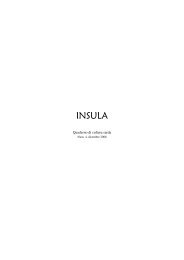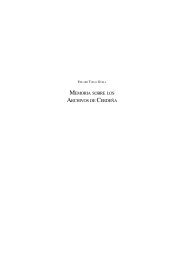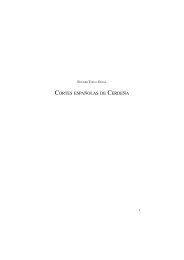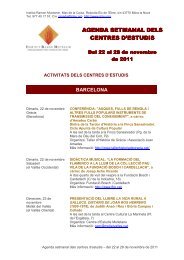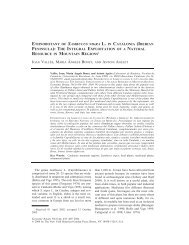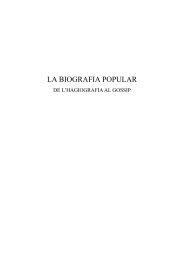Impaginato 5.p65 - Universitat Rovira i Virgili
Impaginato 5.p65 - Universitat Rovira i Virgili
Impaginato 5.p65 - Universitat Rovira i Virgili
You also want an ePaper? Increase the reach of your titles
YUMPU automatically turns print PDFs into web optimized ePapers that Google loves.
124<br />
Therefore, they should be viewed as deriving ultimately from hamalau. The<br />
logic of this reconstruction is reinforced by the fact that the referent evoked by<br />
these expressions is essentially identical: it is the same fearsome creature,<br />
instantiated socio-culturally in a very similar fashion across the entire<br />
geographical region. In short, there has been significant stability in the nature of<br />
the referent itself.<br />
5.4. Exploring a final Basque variant: Inguma<br />
Roslyn M. Frank<br />
Among the phonological variants of hamalau, e.g. marrau and mamua,<br />
Satrústegui also cites the following expressions encountered in Valcarlos, Low<br />
Navarre: mahumahu, mahu-mahuma, mahoma, mahuma and inguma. The terms<br />
mamua, mahuma, etc. are listed as synonyms of inguma (Lhande 1926: 512).<br />
The form inguma appears to represent a much later, more specialized<br />
phonological development of the term hamalau since it, too, is applied to the<br />
«sensed presence» or «night visitor» (Satrústegui 1981a, b, 1987). In the case of<br />
inguma, the word has no obvious root-stem in Basque. This fact suggests that<br />
there are two possible paths for its etymology: 1) it is a borrowed term from an<br />
unknown source or perhaps from Lat. incubus, as Trask (1999) once suggested;<br />
or 2) it is an indigenous term whose etymology has become obscured. Given<br />
that inguma is used to refer to the «sensed presence» or «night visitor» we have<br />
been discussing, its semantic referent and content is synonymous with that of<br />
mamua, marrau, etc.. Hence, perhaps the most logical etymological choice would<br />
be one based on the following set of phonological shifts: hamalau > *mamalau<br />
> mahumahu > mahuma > *maguma > inguma.<br />
In discussing the various terms that exist in Euskara for «butterfly», Trask<br />
made the following comment:<br />
Inguma (G) (1745). This curious word does not look like an expressive formation.<br />
But the same word is recorded from 1664 as ‘incubus, succubus’. We may therefore<br />
surmise a possibly unattested Late Latin *incuba ‘female incubus, succubus’, which,<br />
if borrowed into Basque, would regularly yield the attested inguma. The motivation<br />
is not obvious, but I have seen pictures of the night-demons portraying them as perched<br />
on top of the bodies of their sleeping victims, so maybe the butterfly’s habit of perching<br />
is the motivation. (Trask 1999).<br />
In contrast to Trask’s proposed etymology, based on an unattested Late<br />
Latin form, I would argue that another argument in favor of preferring an<br />
indigenous etymology is the fact that inguma refers both to the «night visitor»


